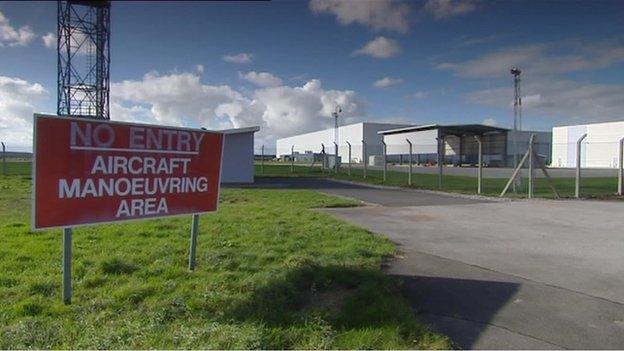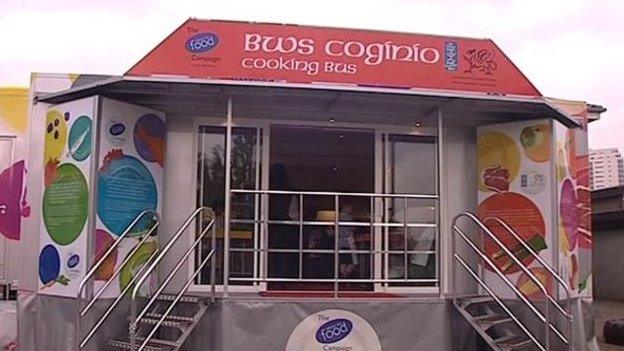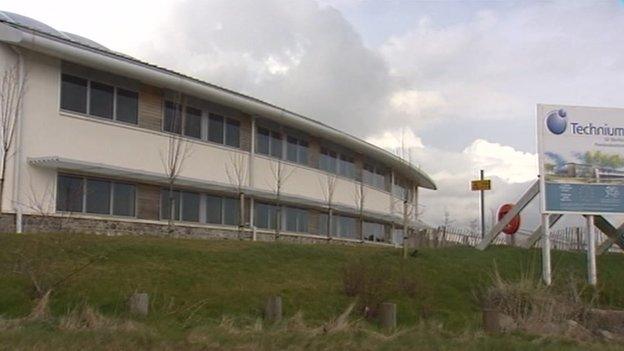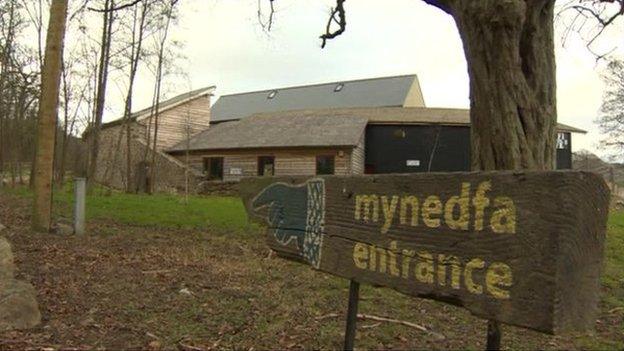Six of Wales' biggest public money blunders
- Published
Over the years Wales has had a few memorable gaffes in public spending.
BBC Wales' Week in Week out programme has revealed details of how the taxpayer may have lost out by £15m as a result of the way publicly-owned land was sold.
It got me thinking about some of the biggest blunders made with public money. Here are some of the most infamous:
LG

It is fair to say, not all the Welsh Development Agency's investments were exactly a roaring success and the LG fiasco was perhaps its most infamous blunder.
During the late 1990s, Welsh public bodies paid out £131m to LG companies to help them create 6,000 jobs. The trouble was only half that number of jobs were ever created, and by 2006 the last LG factory in Wales had closed.
Although £71m was recovered it still meant a net loss of £60m to the taxpayer. Ouch.
Red Dragon Project

The Red Dragon project seemed to have it all - major investment, military importance and even a racy, patriotic name.
The project, which began in 2000, planned to modernise Ministry of Defence (MoD) facilities at St Athan and build a £77m super hangar for fast jet repair. But in 2005, the MoD decided to switch work to other RAF bases.
It ended up costing the taxpayer £113m and failed to create the thousands of jobs planned.
In 2009, the then Defence Minister Quentin Davies said the decision to move fast jet repair away from St Athan resulted in savings elsewhere. He also said lessons had been learned from the failed project.
Cooking bus

Cooking lessons? On a bus? What could go wrong? Well…
From 2006 the cooking bus was pulling up at primary schools across the country on a mission to teach children about making healthy meals.
But a report published two years ago said it was unlikely to bring any health benefits and last month it was announced the bus would be sold off. Its last salad had been tossed.
The total cost of the failed project was likely to be more than £5m and Public Health Wales acknowledged it needed to do things differently.
Kung Fu lodge

To some extent you have to admire the optimism of the plan to create the world's first Shaolin centre outside of China... in Llangollen, Denbighshire.
In 2007 the Welsh government bought the derelict River Lodge hotel with plans to lease it to community group Powys Fadog, led by martial arts expert Pol Wong.
But the deal soon got the chop and two separate investigations found £1.6m of public money had been wasted.
A Welsh government spokesman admitted there had been "shortcomings" and lessons had been learned (there is a pattern emerging).
Technium centres

In 2001, the Welsh government made a seemingly laudable investment into the new high-tech world.
Office spaces were built to act as incubators for high-tech start-ups. Ten "technium centres" were built, kitted out and ready for action. There was just one thing missing - the high-tech start-ups.
Six of the units closed in 2010 and Andrew Davies, who was economic development minister at the time, said it had been a "waste of £100m of public expenditure".
In fairness, the other four centres are still operating and have had some successes.
Heritage centre

Canolfan Cywain was opened in Bala, Gwynedd, with fanfare in April 2008 and was described as a heritage, rural life and sculpture centre.
By September 2011, it was closed. It had been losing money and had cost the public purse a total of £3.4m.
An investigation by the Wales Audit Office said it was likely to fail from the start, a Welsh government spokesman said improvements had since been made to the way projects are monitored and that - you guessed it - lessons had been learned.
